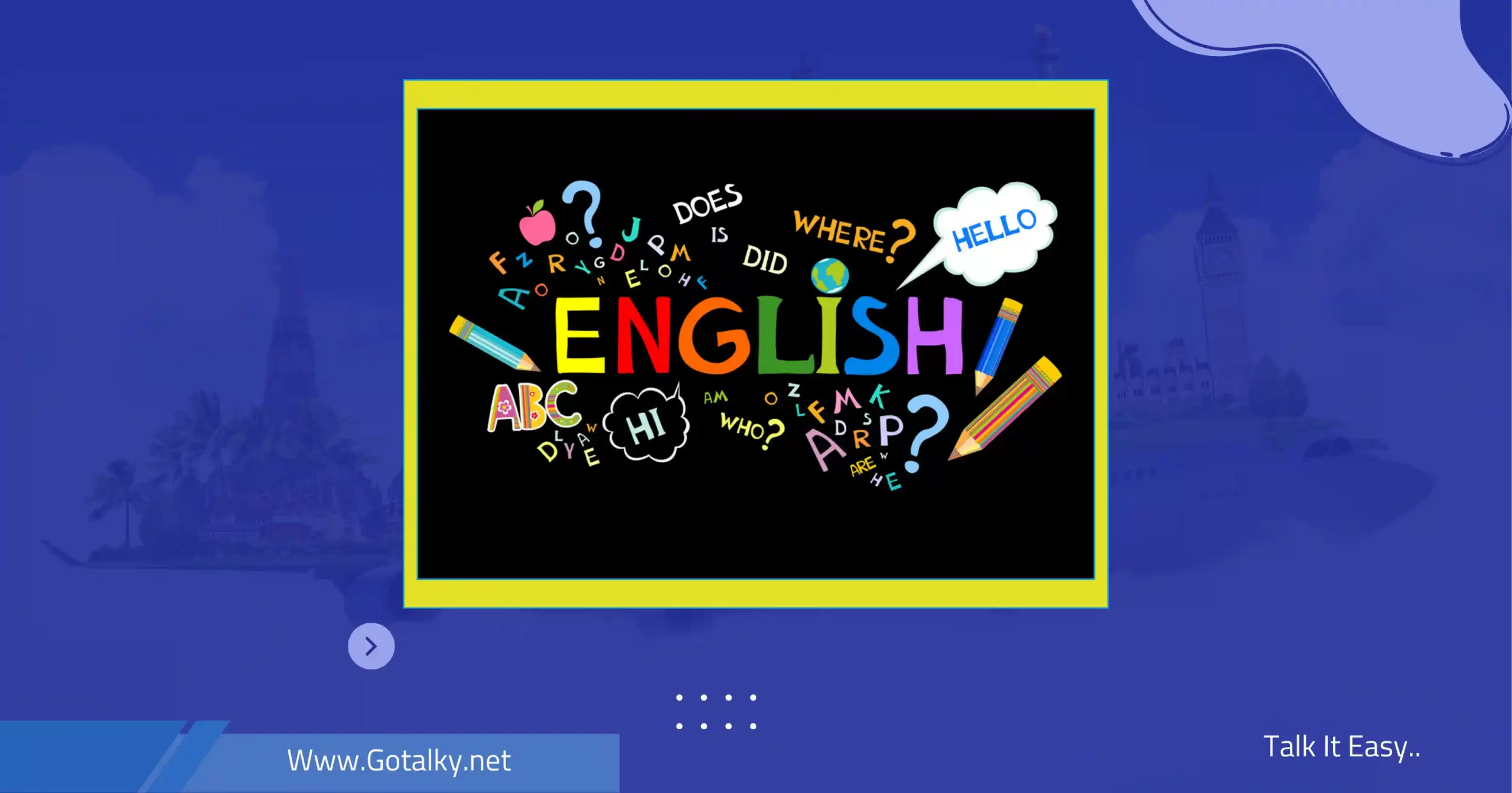Soccer is one of the most famous sports worldwide, characterized by a broad and popular fan base that includes enthusiasts from various cultures and languages. While these fans share their passion for the game, the English language is intricately intertwined with soccer. It is the language through which players and coaches express game tactics, exchange instructions, and strategies during matches. English is particularly considered the universal language of soccer, facilitating communication among players from different countries and backgrounds.
GoTalky is considered one of the best educational resources for comprehensive and enjoyable English language learning and it provides so many courses like business English speaking training program, advanced English speaking skills course and the spoken English course with native speakers. The website offers a diverse range of interactive lessons and exercises covering various aspects of the English language, from grammar rules to everyday conversations. It also allows learners to interact with native English-speaking instructors, helping them improve their pronunciation and listening skills.
The history of the English language and its connection to global soccer date back to the British Empire era, during which the English language spread due to the empire’s power and influence in many countries. As the British Empire expanded in the 19th and 20th centuries, the English language widely proliferated across the world. Consequently, soccer was greatly influenced by the English language, with the laws and communication in the game conducted in English. Thus, if you’re into soccer and you’re a beginner at English, you should consider enrolling in an online English speaking course for beginners.
What are the other benefits of using the English language in soccer? In addition to the benefits mentioned earlier, there are many other advantages to using the English language in soccer:
- Communication with Coaches and Players: Using the English language facilitates communication between coaches and players from different nationalities and cultures. They can exchange ideas, tactics, and feedback more effectively, enhancing understanding and improving individual and team performance.
- Understanding Rules and Instructions: The English language is used in formulating the rules and instructions for soccer. By understanding English, coaches and players can comprehend new rules, tactical instructions, and coaching guidance better.
- Communication with Fans and Media: Using the English language provides opportunities for coaches and players to communicate with global fans and media outlets. They can conduct interviews, give statements, exchange opinions, and share information more effectively, enhancing the relationship with fans and contributing to building a positive image for the team and players.
- Access to Resources and Information: The internet and social media are essential platforms for coaches and players to access resources and information related to soccer. Since much of the content available online is in English, the ability to understand and utilize it expands their knowledge base and contributes to skill development.
- Job Opportunities: Coaches and players proficient in the English language can benefit from additional job opportunities in the world of soccer. They can work as coaches or sports analysts in international leagues, and they can also successfully transition to other countries to play or coach, thanks to their ability to communicate in English.
English as a Global Communication Tool in Soccer
English is now the global language of communication in the world of soccer. With the diversity of cultures and nationalities among players and coaches in different teams and national squads, the need for a common language for communication has become essential. This is where the English language steps in to meet this need, as many players, coaches, and international referees speak English. Therefore, think about taking your effective English pronunciation course.
English in the World of Sports Advertising and Sponsorship
The English language is widely used in the world of sports advertising and sponsorship. When we watch commercial advertisements for football teams or brands associated with soccer, we find that English is the primary language used in slogans and advertisements. This reflects the cultural and commercial strength of the English language in soccer presentations.
Challenges and Benefits Associated with the English Language in Soccer
Communication in a multilingual international environment can be a significant challenge. However, learning the English language presents an opportunity for players and coaches to overcome these challenges and interact effectively with their teammates and the global audience. Proficiency in English enables them to communicate effectively with coaches and fellow players on the field and helps them better understand tactics and strategies.
Furthermore, mastering the English language enhances players’ chances of international success. The ability to communicate effectively with the media and global fans boosts their fame and their ability to build a positive image for themselves. It also allows them to integrate better into foreign teams and adapt to new environments.
The Strength of the English Language in Spreading Soccer Culture
The English language plays a crucial role in spreading soccer culture worldwide. By using the English language on jerseys, chants, and soccer expressions, fans from all nationalities and languages can enjoy the soccer experience uniformly. The English language contributes to effectively conveying soccer ideas and concepts across linguistic and cultural boundaries.
What is the Language of Soccer?
The language of soccer is a global language used for communication among players of different teams and referees during matches. This language was developed to facilitate communication and the exchange of information on the field among players who may come from different cultures and languages. This language includes hand gestures and simple signals used to indicate playing tactics and convey specific movements and coach instructions.
For example, players may use simple signals like hand signals to indicate where they want the ball to be passed or to signal the direction in which they prefer a pass. Referees and players can also communicate through specific signals to indicate various officiating decisions, such as yellow or red cards.
This language helps improve communication on the field, reduces confusion, and minimizes variations in player instructions. The language of soccer is an important part of the game’s strategy and tactics, aiding in team coordination and enhancing playing effectiveness.
Learn About the Differences Between British English and American English
English is a global language widely used across the world, but there are some differences between British English and American English in terms of spelling, vocabulary, and pronunciation. For example, in British English, “colour” is spelled with a “u,” while in American English, it’s spelled “color.” This is just one example of linguistic differences between the two.
Which Is Easier, American English or British English?
It cannot be definitively stated that one version is easier than the other, as it depends on the learner’s background and preferences. Some people may find American English easier due to its simplified spelling and pronunciation, while others consider British English to be more authentic and cohesive.
Common Questions
What Are Soccer Terms?
A learner of soccer terms is someone who is learning and understanding the vocabulary and terminology related to the world of soccer. This person may have an interest in sports and want to learn its terminology to better understand games and sports commentary. By watching matches, reading sports articles, and listening to analyses and commentary, individuals can expand their vocabulary and comprehension of the terms used in the game.
GoTalky is considered one of the best educational resources for comprehensive and enjoyable English language learning. The website offers a diverse range of interactive lessons and exercises covering various aspects of the English language, from grammar rules to daily conversation. It also allows learners to interact with native English-speaking instructors, helping them improve their pronunciation and listening skills. It also provides courses for both children and adults such as the English conversation course for kids, the English fluency course for non-native speakers, accent reduction and clarity in English course and also courses for preparing students for international exams like the TOEFL speaking test preparation course and the IELTS speaking exam tips and course.
What Does “SPE” Mean in Soccer?
The abbreviation “SPE” in soccer can be associated with the term “Substitute Player Entry,” which refers to substitute players entering the field during a match to replace other players. This abbreviation is used in many tournaments and sports competitions to record the entry of substitute players onto the field.
What Is the English Name for Soccer Goal?
In English, the soccer goal is called a “Goalpost.” It is the place where players attempt to score goals. The goalpost consists of two vertical columns anchored in the ground, and there is typically a net attached between the columns to help determine whether the ball has crossed the goal line and scored a goal.





